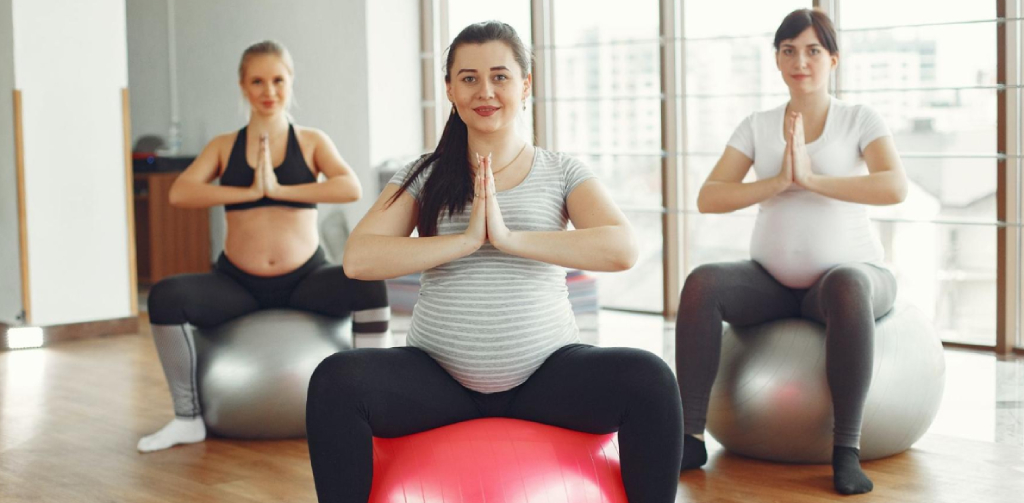Pregnancy and childbirth are among the exciting yet scary experiences that a woman goes through during her life. The ongoing processes in her body provoke mental and physical changes during the pregnancy and sometimes post-pregnancy too. Just like physical health, mental health at these times is of utmost importance for both the mother and infant. Depression during pregnancy has been linked to increased gestational complications such as stillbirth, low birth weight, and postnatal birth problems. It also results in neurodevelopmental issues such as behavioral, emotional, or cognitive problems. On the other hand, anxiety and stress have been directly linked to premature delivery and other related complications.
Managing anxiety, stress, and depression during pregnancy are, therefore, extremely essential to reduce the chances of raising a mentally or physically challenged baby. Mindfulness meditation has been proven to alleviate anxiety, stress, and depression by allowing pregnant women to focus more on the present and being aware of upcoming changes.
How Do Stress, Anxiety, and Depression Cause Complications During Birth?
When a woman during pregnancy feels the blues of anxiety, depression, and stress, the body releases sad hormones also known as cortisol. Stress hormones can then be transferred to the fetus through the umbilical cord. Even if these hormones do not cause physical problems in the fetus, they surely do cause mental problems.
Multiple studies have suggested that children whose mothers were under extreme stress during pregnancy are found to be aggressive and less compassionate in nature. They had low tolerance levels and decreased levels of immunity.

On the other hand, if a woman during pregnancy is happy, active, and energetic, she releases happy hormones known as endorphins. These hormones are also transferred to the fetus through the umbilical cord, which results in healthy infants. Therefore, children with happy mothers showed higher tolerance levels and boosted immunity. They were happier, calmer, and more compassionate.
Mindfulness Meditation Reduces Stress in Pregnancy
A study conducted in 2014 concluded that pregnant mothers who took mindfulness meditation courses in their second or third trimesters experienced profound changes in their mental and physical health. They learned techniques to be “OK” with pain, negative sentiments, and challenging social behaviors. The techniques allowed them to be calmer and deal with their body changes in a better way reducing the overall stress.
Another study in 2008 introduced mindfulness meditation to pregnant mothers who then learned to be aware of the present moment and changes through upcoming labor pain. They were also able to deal with emotional changes and how having a baby might change their entire life.
A research conducted on meditation and pregnancy concluded that women with the fear of childbirth and its associated pain were able to opt-out of elective caesarian due to reduced anxiety and stress from meditation. Hence, mindfulness reduces pregnancy anxiety and allows women to navigate through their feelings and complex emotions.
Meditation Boost Positive Emotions during Pregnancy
Our experiences shape us, therefore, the tendency to be mindless increases with our past experiences. For instance, a woman may have had a bad experience during a womans first pregnancy. During the second pregnancy, she assumes situations to be the same as they were in the past and doesn’t allow new experiences to kick in. The women’s perspective of pregnancy being painful and exhausting doesn’t let her acknowledge that this time, the pregnancy is not as painful and exhausting as before. This does not let her notice how different the pregnancy is this time which hinders her from enjoying this pregnancy. Being mindless, therefore, creates more stress, anxiety and may lead to depression.
Nevertheless, mindfulness-based meditation during pregnancy is now allowing women to notice the changes in their moods and bodily sensations. It is also letting them be more aware of the changes and stop dwelling on past experiences. A 2016 study found that women practicing mindfulness meditation have increased feelings of wellness in terms of physical and mental health. Their self-esteem, enthusiasm, determination, and positive emotions increase with mindfulness meditation during pregnancy.
Mindfulness Helps Avoid Preterm Babies
Premature births are common in the 21st century. Infants born under 37 weeks of pregnancy are called premature babies. They are prone to breathing, vision, and hearing problems along with other developmental delays. For instance, delay in teething, walking, and talking. Mothers of premature babies usually experience anxiety, depression, and stress also known as the “baby blues” during their pregnancy. This increases the chances of premature birth. It is also possible that after birth, mothers start feeling blue which increases the chances of transferring sad hormones to the babies through breast milk. Mothers, therefore, do not acknowledge their feelings due to exhaustion of staying up late at night and not getting enough rest during the day.
However, mindfulness meditation has changed the way mothers handle depression, anxiety, and stress. They are able to deal with the negative emotions in a better way. A 2005 study introduced mindfulness meditation to approximately 168 pregnant women which resulted in fewer premature births, and fewer babies with low weight. Another study stated that women practicing mindfulness meditation had better infant APGAR scores. (APGAR scores test the overall health of the baby minutes after being born).
Mindfulness Meditation Promotes Healthy Developments
The growth of a fetus depends on a mother’s health whether physical or mental. A research conducted in 2015 concluded that mothers who practiced mindfulness meditation had babies with fewer developmental problems. The follow-up study reported that those toddlers at 10 months had fewer difficulties in settling down and adjusting to changing environments. For instance, toddlers when crying were easier to calm down and understood better which things they should not touch. Another study found out that toddlers of mindful mothers had efficient use of attentional resources at the age of ten months.
Additionally, some studies have shown that mindfulness meditation increased the overall well-being of pregnant mothers. Their weight gain was better than those mothers who did not meditate. Their emotional well-being increased and they performed better in their everyday tasks.
Key Takeaways
Mindfulness meditation is not only effective in pregnant mothers but also benefits their children. Additionally, the benefits are not restricted to fetuses or infants but extend beyond into childhood and maybe even more. Mindfulness meditation is an effective calming technique for pregnant mothers. It encourages better moods, increased self-esteem and helps overcome emotional challenges related to pregnancy.




